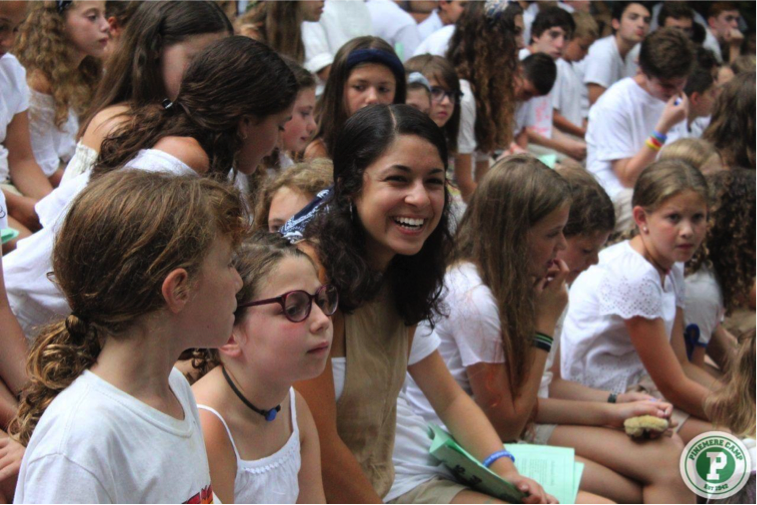
In the Image of God?
As I’ve grown, I have embedded myself in various Jewish communities. Whether within the shaky room dividers constituting the walls of my religious school or the open-air chapel of my camp tucked away in the Pocono Mountains, I’ve discovered that the connection I hold with those surrounding me is not a common belief in God; rather, it’s a shared faith in Jewish values, and a shared desire to live according to those values.
Through this discovery, I have shaped my Jewish identity to fit my needs and beliefs. In my crafted Jewish identity, there is not a space carved out for God; instead I have chosen to define my Judaism by my bonds to various Jewish communities. The lessons I’ve drawn from my experiences in these places have guided me as I’ve questioned ideas that have been ingrained in my head since my first Sunday morning religious school class 13 years ago.
The fact that the very first image I had of one of the most important figures in the Jewish world was male directly conflicts with nearly everything I’ve been taught as a feminist. Yet, after being relieved of this limiting portrait, I had the freedom to see God in any way. That extended to role models as well. I have since discovered countless women that I revere within my Jewish communities. Take my synagogue’s youngest rabbi as an example. Seeing her stand on the bimah during services and talking with her in the halls of temple has shattered the barriers I once believed existed for me. She, along with dozens of other women in my life, has helped me craft an identity that better fits my core beliefs.
While God no longer has a featured role in my Judaism, the path of questioning that I embarked on after my mother wiped my perception of God represents a beloved value of asking questions, one that I’ve gained from Jewish spaces.
Tucked into countless Jewish traditions, asking questions has always been a core part of my Judaism. If you look at the Haggadah, you discover that the entire seder revolves around questioning, from the Four Questions to the Four Children. And although these questions have always been a part of my Jewish traditions, they did not always make sense to me. The answers to the questions I ask throughout the Passover meal never change and are drilled into my head year after year. It took time to understand that, despite the unwavering written answers, these questions can still serve to challenge our understanding of ourselves and our actions, and as we grow older, the answers are constantly changing.
I have since learned to question outside of those two nights a year in April I spend sitting around a Seder table. I’ve sought answers in the classrooms of my religious school as we learned about the Holocaust. I’ve sought answers on Saturday afternoons at NFTY events when discussing implicit bias. I’ve sought answers as I try to picture who my God is. Feeling emboldened enough to challenge and question my image of a God who has been revered for centuries is an ability I can credit my Jewish identity for.



